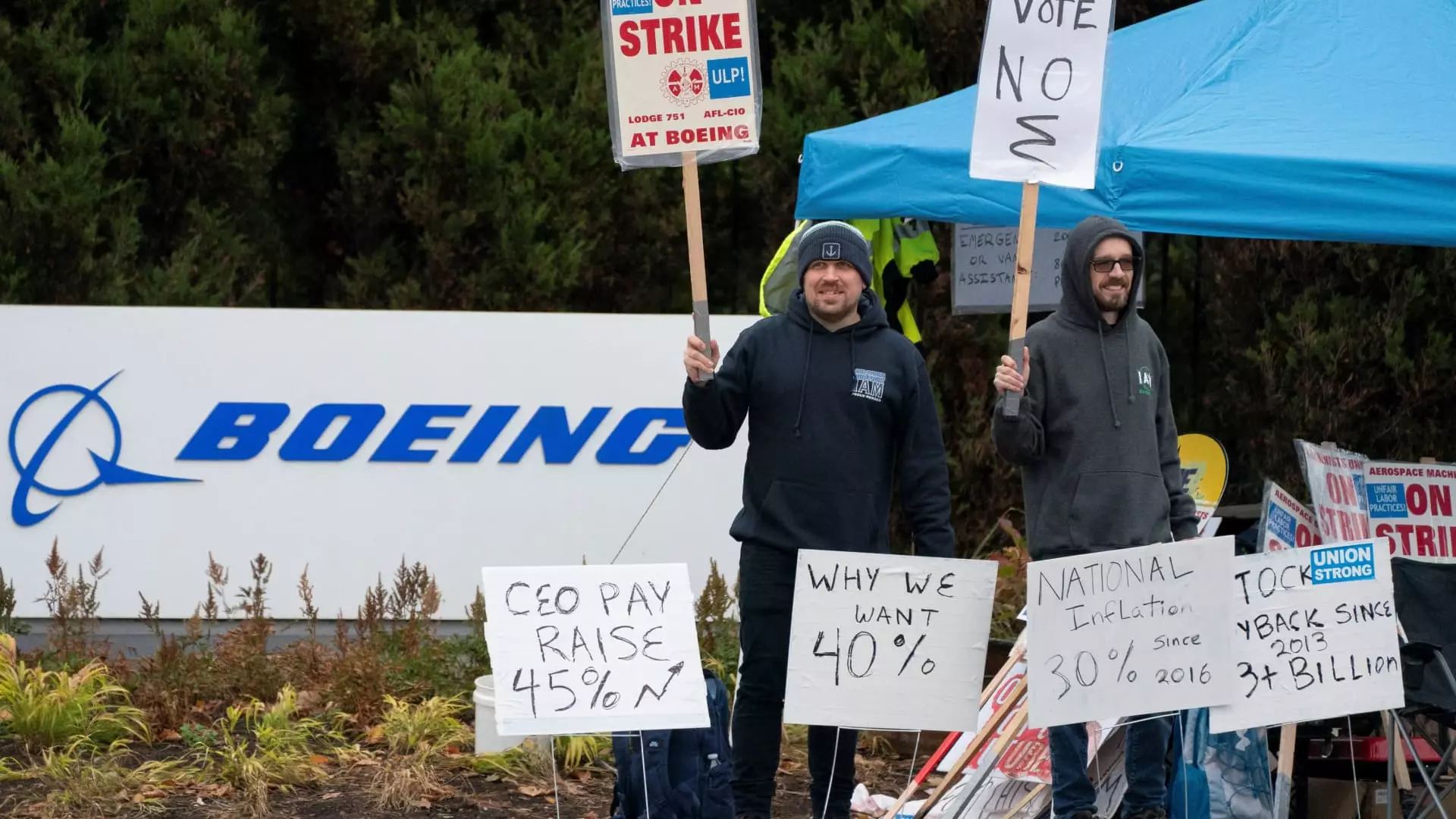After a protracted struggle that has lasted nearly seven weeks, Boeing and the International Association of Machinists and Aerospace Workers District 751 are on the brink of a potential resolution. This turmoil began on September 13 when over 32,000 machinists, predominantly from the Seattle area, walked off the job after rejecting a tentative agreement. The strike, rooted in the push for better wages in light of escalating living costs, has become emblematic of the larger discourse surrounding worker rights and corporate responsibility in today’s economy.
As the negotiation process unfolded, the union’s determination to secure advantageous terms for its members was evident. The Machinists’ Union expressed a keen awareness of the need to strike a balance: the risk involved in prolonging the strike weighed heavily on their decision-making. On Thursday, they articulated their belief that the current proposal may be the best opportunity to secure a favorable deal, emphasizing that further delays might lead to offers that could be less beneficial.
The latest contract offer appears to be a significant improvement over previous negotiations. With a proposed 38% wage increase over a span of four years, this offer is a vital adaptation to the realities of rising living expenses in the Seattle metropolitan area, which has seen its living costs spike alongside the growth of major tech companies. The union highlighted that this latest proposal doesn’t just focus on hourly pay; it incorporates tangible incentives aimed at enhancing the overall compensation package. Workers are now presented with a crucial choice: a sizable one-time ratification bonus of $12,000 or a combination of a $7,000 bonus and a $5,000 contribution to a 401(k) plan. Such options could benefit workers differently depending on their individual financial circumstances and long-term plans.
Additionally, Boeing’s commitment to improving average machinist pay—which is projected to reach approximately $119,309 by the end of this contract—stands out. This figure is critical as it not only underscores the company’s acknowledgment of its employees’ efforts and contributions, but also reflects an understanding of the competitive labor market in the tech-centric region.
Amid this ongoing negotiation, Boeing faces significant pressure, both from the strikers and the broader context of its financial performance. With a loss exceeding $6 billion in the last quarter and ongoing challenges surrounding production flaws and safety issues—such as the recent incident with the Boeing 737 Max 9—the company is under intense scrutiny. This situation is exacerbated by the strike, which further delays Boeing’s plans for stabilizing its operations and restoring confidence among stakeholders.
In his recent statement, Boeing CEO Kelly Ortberg emphasized the company’s commitment to arriving at a conclusion that meets both the company’s and employees’ needs. However, past rejections by workers of negotiated agreements suggest a growing disillusionment. The impact of labor movements like this one highlights the critical intersection of economic realities and employee advocacy. Workers are not merely fighting for wage increases but are asserting their right to equitable treatment in a rapidly changing economic landscape.
As the vote on the new proposal approaches, the decision will likely delineate a critical juncture in Boeing’s relationship with its workforce. Approval would signify not just a milestone in negotiations, but also a potential turnaround for a company spiraling under financial strain. Conversely, if the proposal is rejected, it may signal ongoing labor unrest and heightened demands from employees.
The implications of this strike extend well beyond Boeing’s walls; they represent broader labor issues within the aerospace industry and other sectors grappling with similar challenges concerning wage fairness, job security, and employee rights. The resolution of this strike may well set a precedent, influencing labor negotiations nationally and changing the landscape of worker-employer relations in the years to come.


Leave a Reply